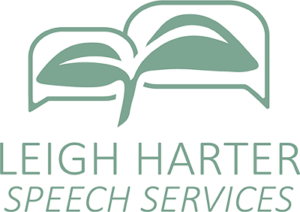Speech Therapy Groups
Speech Therapy Groups for Adults
Speech therapy groups create a dynamic and supportive space where adults can address their communication and speech-related difficulties. These groups offer distinct advantages that enhance individual therapy sessions, nurturing camaraderie and skill development within a positive social context. Engaging in an adult speech therapy group provides the following benefits:
Skill Enhancement: In speech therapy groups, adults focus on refining speech, language, and communication skills essential for daily interactions and professional settings. Group activities target articulation, fluency, voice modulation, and language comprehension, enhancing overall communication effectiveness.
Peer Learning and Support: Adults in speech therapy groups learn from one another’s experiences and challenges, gaining insights and strategies for improving communication skills. Peer support fosters a sense of community and understanding among individuals navigating similar speech difficulties.
Interactive Exercises: Speech therapy groups incorporate interactive exercises and games designed to improve speech clarity, expression, and comprehension. These activities make therapy sessions engaging and enjoyable while promoting active participation and skill acquisition.
Cognitive Stimulation: Group activities stimulate cognitive functions related to speech and language processing, memory, attention, and problem-solving. Engaging in stimulating discussions and word games helps maintain cognitive vitality and resilience among participants.
Community Engagement: Participation in speech therapy groups encourages adults to actively engage with their communities, fostering connections and relationships beyond the therapy setting.
Speech Therapy Groups for Children
Speech therapy groups offer a dynamic and supportive setting designed to facilitate the development of speech, language, and communication abilities in children. Through interactive sessions, these groups create an environment where children not only enhance their linguistic skills but also cultivate social interaction and receive peer encouragement. The key aspects of speech therapy groups include:
Language Development: Speech therapy groups focus on fostering language development through storytelling, vocabulary-building exercises, and interactive language games. Children engage in age-appropriate activities designed to enhance verbal expression, comprehension, and literacy skills.
Peer Interaction: Children benefit from interacting with peers who may share similar speech and language challenges. Speech therapy groups provide opportunities for children to practice communication skills, turn-taking, and social reciprocity in a supportive and structured setting.
Articulation and Phonological Skills: Group activities target specific speech sound errors and phonological patterns through fun and engaging exercises. Children learn correct tongue placement, breath control, and sound production techniques while participating in games, songs, and tongue twisters.
Social Communication Skills: Speech therapy groups focus on improving pragmatic language skills essential for successful social interactions. Children learn nonverbal cues, conversational turn-taking, and appropriate social behaviors through role-playing, group discussions, and cooperative activities.
Confidence Building: Participating in speech therapy groups helps children build confidence in their communication abilities and overcome speech-related anxieties. Positive reinforcement, peer encouragement, and supportive feedback promote self-esteem and willingness to communicate.
Holistic Approach: Speech therapy groups address the holistic needs of children, considering factors such as sensory processing, motor coordination, and cognitive development that may impact speech and language abilities. Multidisciplinary collaboration ensures comprehensive and individualized support for each child’s communication journey.
Progress Monitoring and Goal Setting: Speech therapists monitor children’s progress through ongoing assessments and observations, adjusting therapy plans and goals as needed to promote optimal outcomes. Regular progress updates and goal-setting sessions involve children and parents in tracking achievements and planning next steps in therapy.
Peer Learning and Support: Adults in speech therapy groups learn from one another’s experiences and challenges, gaining insights and strategies for improving communication skills. Peer support fosters a sense of community and understanding among individuals navigating similar speech difficulties.
Interactive Exercises: Speech therapy groups incorporate interactive exercises and games designed to improve speech clarity, expression, and comprehension. These activities make therapy sessions engaging and enjoyable while promoting active participation and skill acquisition.
Cognitive Stimulation: Group activities stimulate cognitive functions related to speech and language processing, memory, attention, and problem-solving. Engaging in stimulating discussions and word games helps maintain cognitive vitality and resilience among participants.
Community Engagement: Participation in speech therapy groups encourages adults to actively engage with their communities, fostering connections and relationships beyond the therapy setting.


Schedule Group Speech Therapy
Through personalized group speech therapy sessions, Leigh Harter Speech Services introduces an additional avenue to achieve therapeutic objectives. In an atmosphere of support and collaboration, our groups employ cooperative methodologies to empower adults and children to achieve therapeutic goals.
